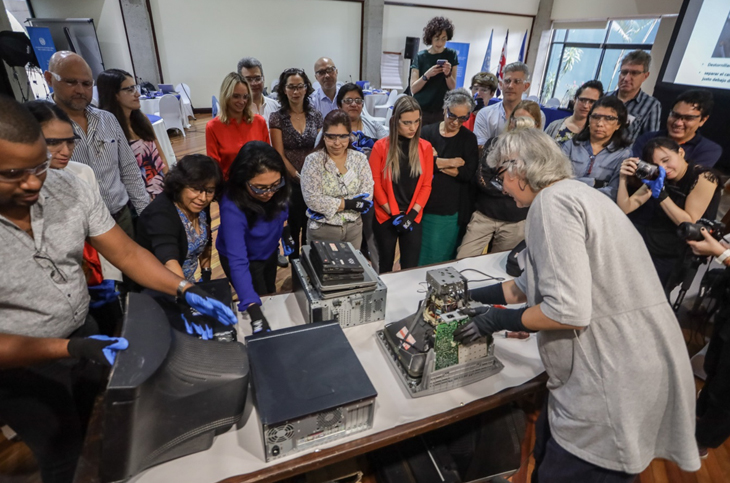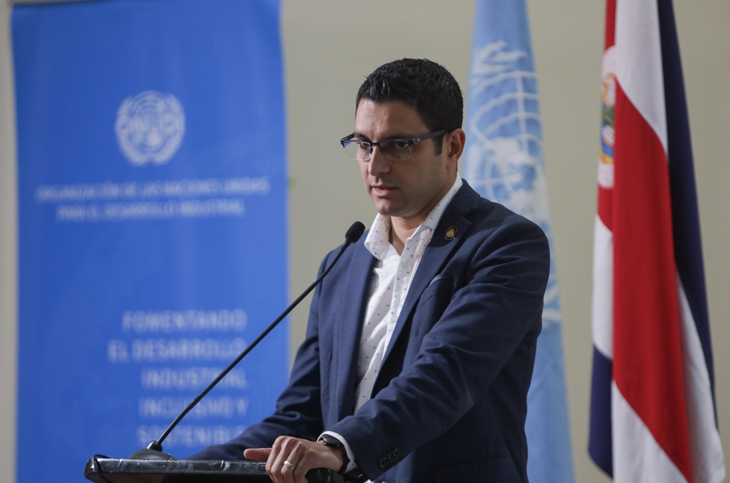Tackling e-waste challenges in Latin America

From 17–22 March, over 60 political and technical representatives from 13 countries across Latin America and e-waste experts from around the world gathered in San Jose, Costa Rica, to discuss how to tackle the e-waste landscape in the region.
The second Expert Meeting on the Effective Management and Disposal of E-waste in Latin America under the Stockholm Convention on Persistent Organic Pollutants was convened by the United Nations Industrial Development Organization (UNIDO), in cooperation with the Ministry of Health of Costa Rica and with co-financing from the Global Environment Facility (GEF).
The meeting was part of a UNIDO-GEF project to assist 13 Latin American countries both technically and financially, advising on e-waste policies and regulations, suitable management technologies, business models, capacity-building, and awareness-raising. It coincided with Global Recycling Day on 18 March, an initiative of the Global Recycling Foundation to help recognize and celebrate the importance of recycling for preserving precious primary resources.
Following the project launch in Quito in March 2018, this year’s Expert Meeting kicked off on 18 March with Project Steering and Technical Committees meetings and a series of presentations by local recycling companies and UN partner organizations.
The E-waste Academy for Managers (EWAM) started on 19 March and included a series of panel discussions and group sessions on topics ranging from legal aspects of e-waste management to logistical issues such as collection and transport of e-waste. In total four E-Waste Academies will be organized by the United Nations University (UNU) in the course of the project.
The EWAM is a global forum and training event for stakeholders involved in the practical design and implementation of e-waste management solutions, offering a platform to exchange best practices, discuss existing challenges among practitioners and support better-informed decision-making. It is just one of the examples of capacity-building activities that form part of the project alongside awareness-raising, e-waste policy and regulation advice and financial advice, among other activities.
With presentations from renowned international e-waste experts on plastics, financing and more, the Academy also featured a number of practical sessions with participants learning how to dismantle electrical equipment, including a visit to the Global Electric Electronic Processing plant. Several StEP LAC Working group members participated in this EWAM, mainly as instructors.
UNIDO collaborates with a large number of organizations on the project, including national governments other organizations and local e-waste recyclers, SC and BC regional centres, the International Labour Organization (ILO), the International Telecommunications Union (ITU), and the Pan American Health Organization / World Health Organization (PAHO/WHO), as well as various other partners, such as Dell, RELAC and the International Solid Waste Association (ISWA).

Participants learned how to dismantle electrical equipment during the E-waste Academy for Managers (EWAM)

The opening of the event was attended by the Minister of Health of Costa Rica, Daniel Salas Peraza